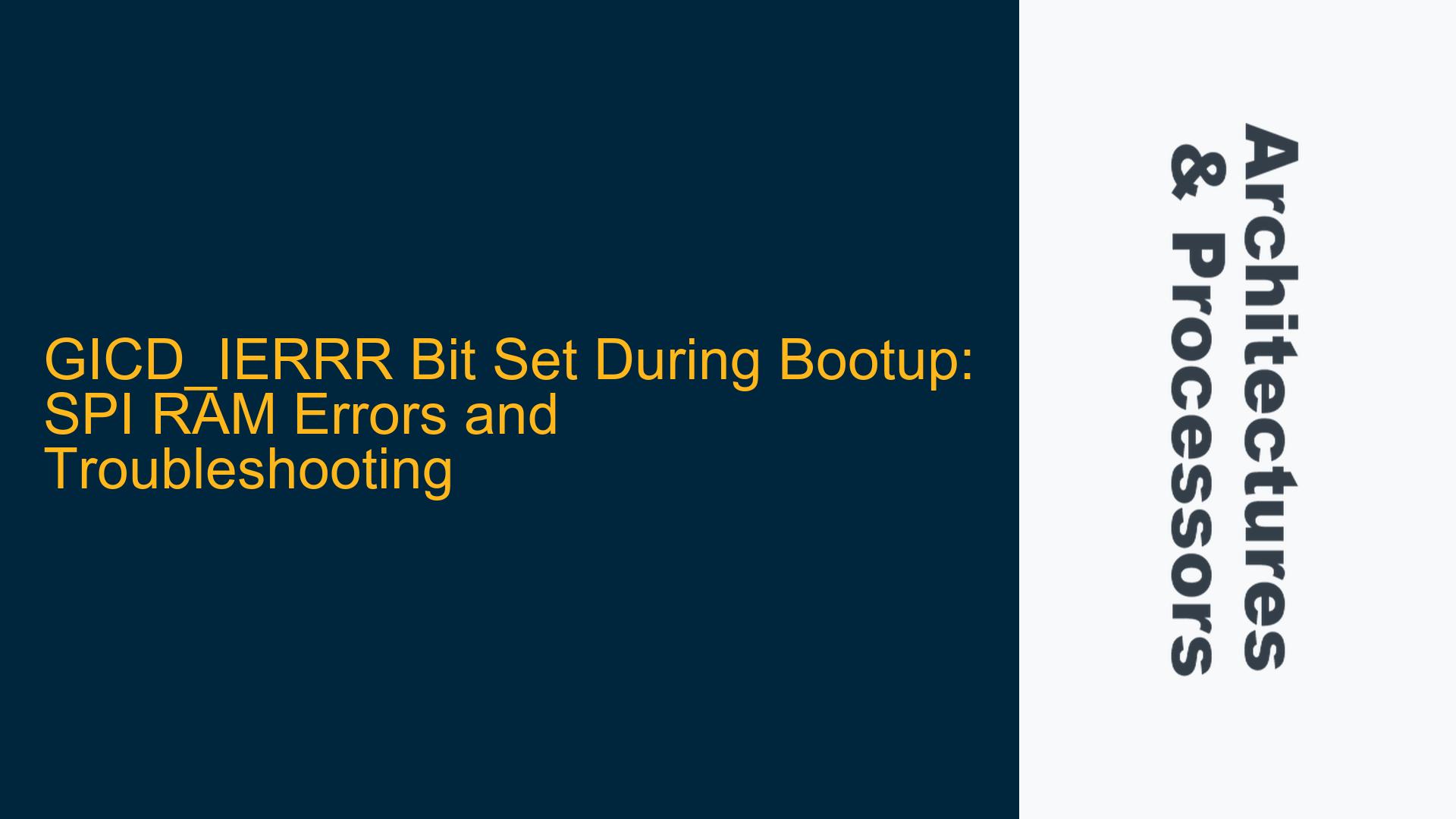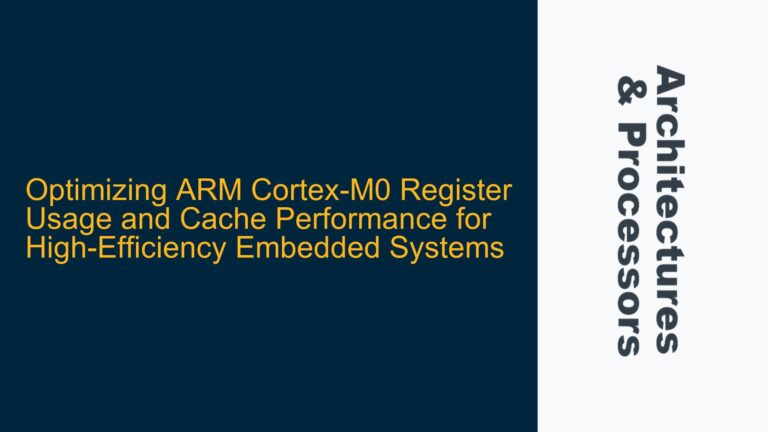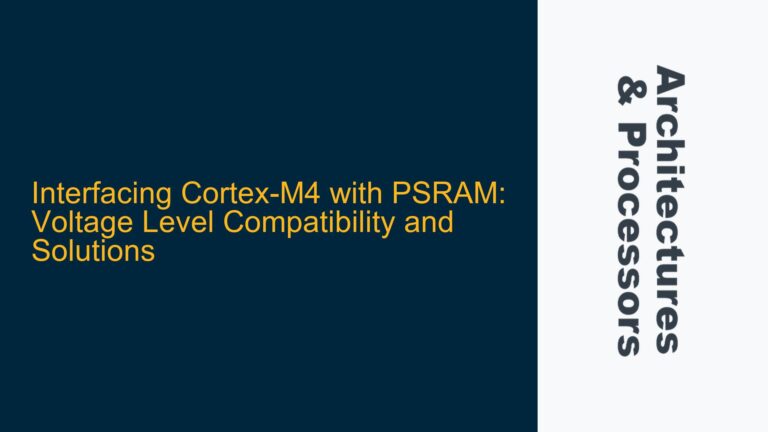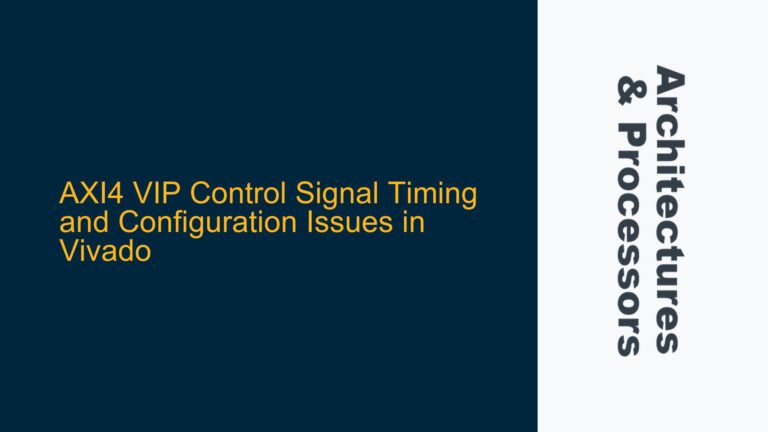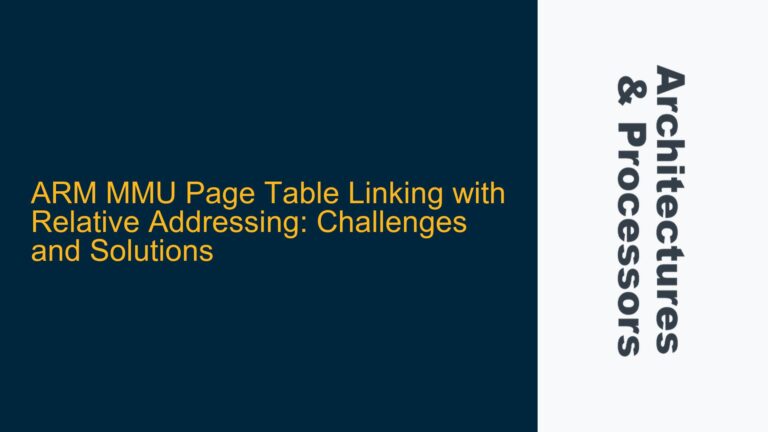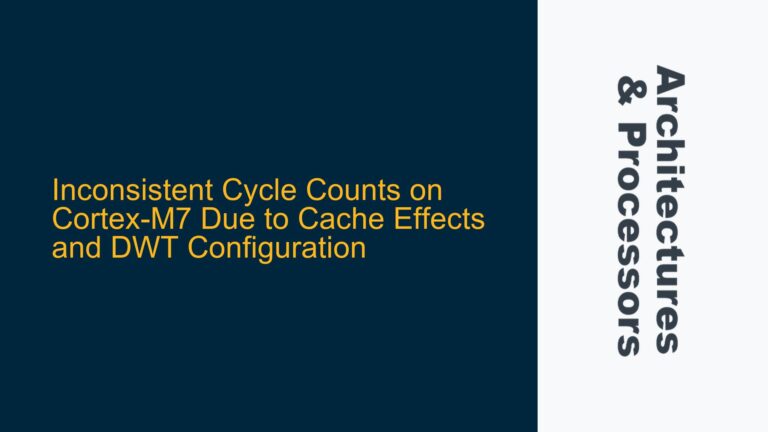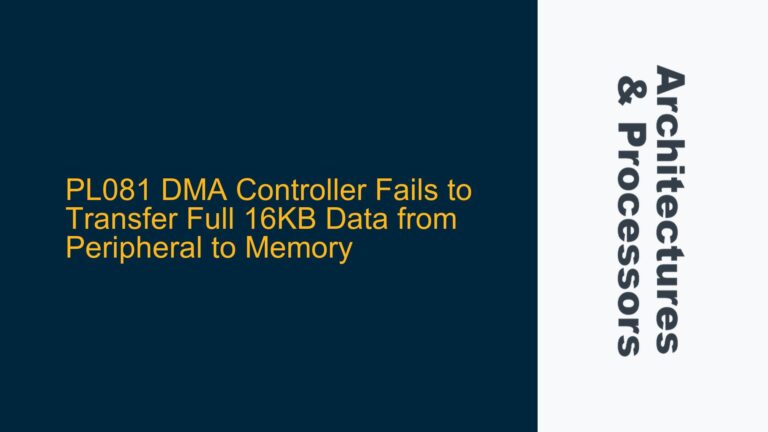GICD_IERRR Bit Set During Bootup: SPI RAM Errors and System Initialization
The GICD_IERRR (Interrupt Error Reporting Register) bit being set during system bootup is a critical issue that can indicate underlying problems in the ARM CoreLink GIC-600 Generic Interrupt Controller. The GICD_IERRR register is designed to report errors related to the RAM used for Shared Peripheral Interrupts (SPI). When this bit is set, it typically signifies that there is an error in the SPI RAM, which is crucial for handling shared peripheral interrupts. The SPI RAM is divided into two parts, SPI0 and SPI1, and any error in these RAM sections can lead to improper handling of interrupts, causing system instability or failure during bootup.
The GIC-600 is a highly configurable interrupt controller that supports a wide range of interrupt types, including SPI, PPI (Private Peripheral Interrupt), SGI (Software Generated Interrupt), and LPI (Locality-specific Peripheral Interrupt). The SPI RAM is specifically used to store the configuration and state of shared peripheral interrupts, which are interrupts that can be delivered to any connected core. If the GICD_IERRR bit is set, it implies that there is a fault in the SPI RAM, which could be due to various reasons such as initialization errors, hardware faults, or timing issues during the boot process.
During bootup, the system initializes the GIC distributor, CPU interface, and redistributor. The GICD_IERRR bit is checked before configuring these components to ensure that there are no pre-existing errors in the SPI RAM. If the bit is set, it indicates that the SPI RAM is not in a valid state, and any further configuration of the GIC components could lead to incorrect interrupt handling. This is particularly critical in systems where multiple cores are involved, as improper interrupt handling can lead to race conditions, deadlocks, or other synchronization issues.
The GICD_IERRR bit is not only indicative of SPI RAM errors but can also be influenced by other factors such as incorrect configuration of the GIC registers, timing issues during the boot process, or even hardware faults in the GIC itself. Therefore, it is essential to thoroughly investigate the root cause of the GICD_IERRR bit being set to ensure that the system can boot up correctly and handle interrupts as expected.
Memory Initialization Errors and Timing Issues in SPI RAM
One of the primary causes of the GICD_IERRR bit being set during bootup is memory initialization errors in the SPI RAM. The SPI RAM is used to store the configuration and state of shared peripheral interrupts, and if this memory is not properly initialized, it can lead to errors being reported in the GICD_IERRR register. Memory initialization errors can occur due to several reasons, including incorrect configuration of the GIC registers, timing issues during the boot process, or hardware faults in the SPI RAM itself.
The GIC-600 interrupt controller relies on the proper initialization of the SPI RAM to ensure that shared peripheral interrupts are handled correctly. During the boot process, the system must initialize the SPI RAM before configuring the GIC distributor, CPU interface, and redistributor. If the SPI RAM is not initialized correctly, the GICD_IERRR bit may be set, indicating that there is an error in the SPI RAM. This can happen if the initialization sequence is not followed correctly, or if there are timing issues that prevent the SPI RAM from being initialized properly.
Timing issues during the boot process can also lead to the GICD_IERRR bit being set. The GIC-600 interrupt controller operates at a high frequency, and any delay or timing mismatch during the boot process can result in the SPI RAM not being initialized correctly. This can be particularly problematic in systems with multiple cores, where the timing of the boot process can vary between cores. If one core initializes the SPI RAM before another core has completed its boot process, it can lead to inconsistencies in the SPI RAM, causing the GICD_IERRR bit to be set.
Hardware faults in the SPI RAM can also cause the GICD_IERRR bit to be set. The SPI RAM is a critical component of the GIC-600 interrupt controller, and any fault in this memory can lead to errors being reported in the GICD_IERRR register. Hardware faults can occur due to manufacturing defects, aging, or environmental factors such as temperature or voltage fluctuations. If the SPI RAM is faulty, it may not be able to store the configuration and state of shared peripheral interrupts correctly, leading to errors being reported in the GICD_IERRR register.
Diagnosing and Resolving SPI RAM Errors in GIC-600
To diagnose and resolve SPI RAM errors in the GIC-600 interrupt controller, it is essential to follow a systematic approach that includes checking the initialization sequence, verifying the timing of the boot process, and testing for hardware faults in the SPI RAM. The following steps outline a comprehensive troubleshooting process to identify and resolve the root cause of the GICD_IERRR bit being set during bootup.
First, it is crucial to verify that the SPI RAM is being initialized correctly during the boot process. The initialization sequence for the SPI RAM should be carefully reviewed to ensure that all necessary steps are being followed. This includes configuring the GIC registers, initializing the SPI RAM, and verifying that the SPI RAM is in a valid state before configuring the GIC distributor, CPU interface, and redistributor. If the initialization sequence is not followed correctly, it can lead to errors being reported in the GICD_IERRR register.
Next, the timing of the boot process should be carefully analyzed to ensure that there are no delays or timing mismatches that could prevent the SPI RAM from being initialized correctly. This can be done by using a logic analyzer or oscilloscope to monitor the timing of the boot process and identify any delays or timing issues. If timing issues are identified, the boot process should be adjusted to ensure that the SPI RAM is initialized correctly before configuring the GIC components.
If the initialization sequence and timing of the boot process are correct, the next step is to test for hardware faults in the SPI RAM. This can be done by running a memory test on the SPI RAM to identify any faults or inconsistencies. The memory test should include checking for stuck-at faults, transition faults, and coupling faults in the SPI RAM. If any faults are identified, the SPI RAM should be replaced or repaired to ensure that it is functioning correctly.
In addition to these steps, it is also important to review the configuration of the GIC registers to ensure that they are set correctly. The GIC registers control the operation of the GIC-600 interrupt controller, and any incorrect configuration can lead to errors being reported in the GICD_IERRR register. The configuration of the GIC registers should be carefully reviewed and verified to ensure that they are set according to the system requirements.
Finally, if the above steps do not resolve the issue, it may be necessary to consult the ARM documentation or contact ARM support for further assistance. The ARM CoreLink GIC-600 Generic Interrupt Controller is a complex component, and there may be additional factors that need to be considered to resolve the issue. By following a systematic approach and thoroughly investigating the root cause of the GICD_IERRR bit being set, it is possible to diagnose and resolve SPI RAM errors in the GIC-600 interrupt controller, ensuring that the system can boot up correctly and handle interrupts as expected.
In conclusion, the GICD_IERRR bit being set during bootup is a critical issue that can indicate underlying problems in the SPI RAM of the ARM CoreLink GIC-600 Generic Interrupt Controller. By carefully analyzing the initialization sequence, timing of the boot process, and hardware faults in the SPI RAM, it is possible to diagnose and resolve the root cause of the issue. Following a systematic troubleshooting process and consulting the ARM documentation or support can help ensure that the system can boot up correctly and handle interrupts as expected.
